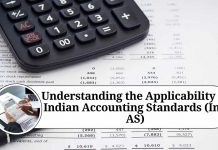Accounting standards refer to the principles, procedures, and guidelines that a business uses when preparing financial statements. The International Accounting Standards Board (IASB) is responsible for setting accounting standards that are used by businesses worldwide. These standards ensure that the financial statements are consistent, transparent, and can be understood by stakeholders such as investors, creditors, and regulators.
In this article, we will discuss the list of accounting standards and their importance in financial reporting.
Overview Of Accounting Standards
Overview of Accounting Standards: The IASB has developed a list of accounting standards, known as the International Financial Reporting Standards (IFRS), which provide a common global language for reporting. The IFRS are applicable to both public and private companies es, regardless of their size and nature of business.
The IFRS comprises of two types of accounting standards:
- IFRS Standards: These standards provide guidance on specific accounting topics such as revenue recognition, leasing, and financial instruments. They are updated regularly to reflect changes in accounting practices and business models.
- IFRS guidance standards guide how to apply the IFRS standards in specific situations.
List of Accounting Standards: The following is the list of accounting standards issued by the IASB:
- IFRS 1 – First-time Adoption of International Financial Reporting Standards
- IFRS 2 – Share-based Payment
- IFRS 3 – Business Combinations
- IFRS 4 – Insurance Contracts
- IFRS 5 – Non-current Assets Held for Sale and Discontinued Operations
- IFRS 6 – Exploration for and Evaluation of Mineral Resources
- IFRS 7 – Financial Instruments: Disclosures
- IFRS 8 – Operating Segments
- IFRS 9 – Financial Instruments
- IFRS 10 – Consolidated Financial Statements
- IFRS 11 – Joint Arrangements
- IFRS 12 – Disclosure of Interests in Other Entities
- IFRS 13 – Fair Value Measurement
- IFRS 14 – Regulatory Deferral Accounts
- IFRS 15 – Revenue from Contracts with Customers
- IFRS 16 – Leases
- IFRS 17 – Insurance Contracts
- IFRS 18 – Revenue
Importance of Accounting Standards: The use of accounting standards is important for several reasons:
- Consistency: Accounting standards ensure that financial statements are prepared using consistent principles and guidelines, making them comparable across different companies, industries, and countries.
- Transparency: Accounting standards require businesses to disclose all relevant information, making financial statements more transparent and accessible to stakeholders.
- Investor confidence: By following accounting standards, businesses can improve investor confidence and attract more investment.
- Regulatory compliance: Accounting standards are often used as the basis for regulatory compliance, ensuring that businesses adhere to certain standards when preparing their financial statements.
Wrapping it Up!
Conclusion: Accounting standards are essential for ensuring that financial statements are consistent, transparent, and understandable to stakeholders. The IASB has developed a list of accounting standards, known as the International Financial Reporting Standards (IFRS), which provide a common global language for financial reporting. By following these standards, businesses can improve investor confidence, attract more investment, and comply with regulatory requirements.
Read more useful content:
Frequently Asked Questions:
Q: What is an accounting standard?
A: An accounting standard is a set of guidelines and rules that govern the preparation and presentation of financial statements. They ensure that financial statements are consistent, accurate, and reliable.
Q: Why do we need accounting standards?
A: Accounting standards are necessary to ensure that financial statements are comparable and understandable to users. They help to promote transparency and accountability in financial reporting.
Q: Who sets accounting standards?
A: Accounting standards are typically set by accounting standard-setting bodies, which can be governmental or non-governmental organizations. In the United States, for example, the Financial Accounting Standards Board (FASB) sets accounting standards for public companies.
Q: How often are accounting standards updated?
A: Accounting standards are updated periodically to reflect changes in the business environment, new accounting techniques, and evolving best practices. Updates can occur every few years or more frequently, depending on the nature of the change.
Q: What are some examples of accounting standards?
A: Examples of accounting standards include Generally Accepted Accounting Principles (GAAP), International Financial Reporting Standards (IFRS), and the Statements on Standards for Accounting and Review Services (SSARS).
Q: Who is affected by accounting standards?
A: Accounting standards can affect a wide range of stakeholders, including companies, investors, creditors, auditors, regulators, and other financial statement users.
Q: What is the purpose of having a list of accounting standards?
A: Having a list of accounting standards helps users to identify and reference the specific guidelines that apply to a particular financial reporting issue. It can also be helpful for companies and auditors to ensure that they are complying with all relevant accounting standards.
Q: Where can I find a list of accounting standards?
A: A list of accounting standards can typically be found on the website of the relevant standard-setting body or in accounting textbooks and reference materials. Some common sources include the FASB Accounting Standards Codification and the IFRS Foundation’s Standards page.
Q: Are accounting standards the same in every country?
A: No, accounting standards can vary by country and region. However, there is an ongoing effort to harmonize accounting standards across different jurisdictions to promote comparability and consistency in financial reporting.







